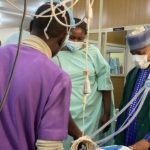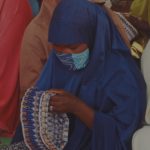The role of health workers in strengthening critical care for COVID-19 in Nigeria
The case management for COVID- 19 is being coordinated by the Department of Hospital Services (DHS) of the Federal Ministry of Health. With the leadership of the DHS, a national protocol and standard operating procedure for the case management of COVID-19 was developed. The continuum of care for COVID-19 case management includes general preventive measures, triage to identify suspected cases, testing, isolation of suspected case as well as asymptomatic confirmed cases and critical care for patients with severe forms of COVID-19. Critical care for COVID-19 often may involve management in intensive care units. Sometimes, ventilatory support may be required.
Currently, there is poor linkage between communities and isolation and treatment centers. Navigating urgent critical care remains a challenge for most patients affected by severe forms of COVID-19. Prior to the pandemic, the capacity of health facilities to provide critical care was very poor. Very few intensive care units had ventilators. Oxygen was also not readily available. More importantly, very few health workers had the capacity to provide critical care.
In the advent of COVID-19 pandemic, providing critical care has gained public health priority. This necessitated the Government of Nigeria to make investments to strengthen intensive care units across the country. These efforts were complemented by donation of 200 ventilators by the US Government. With funding from USAID, FHI 360 through the EpiC project has built the capacity of health workers to provide COVID-19 case management services as well as critical care. FHI 360 has also provided clinical mentoring and supportive supervision to the trained health workers to enable them to translate the knowledge and skills gained during the trainings to strong competence and proficiency in managing patients with severe forms of COVID-19.
FHI 360’s efforts to build the capacity of health workers have enabled them to lead the fight against COVID-19 morbidity and mortality in their various health facilities. Today we are profiling the contributions of five health care workers who have served as front liners in providing case management and critical care for COVID-19 in Nigeria.
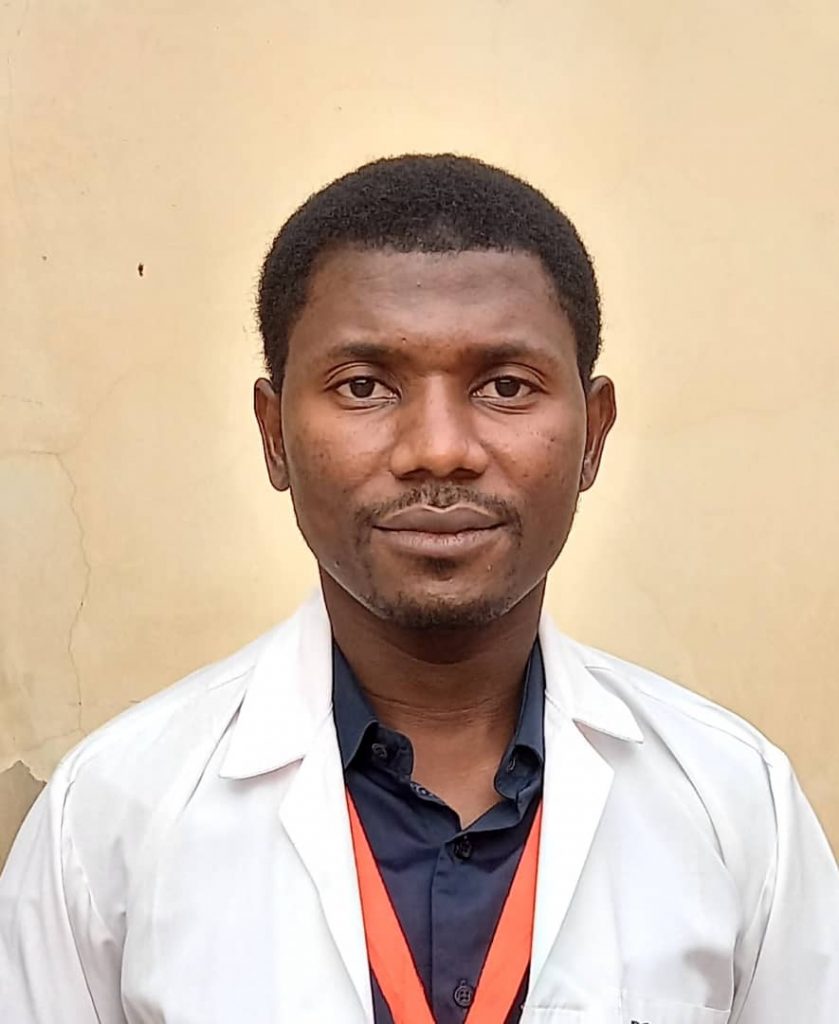
Dr. Ibrahim Salim Abdullahi is a case manager and ICU service provider at Abubakar Tafawa Balewa University Teaching Hospital, Bauchi state. He practices his specialty with passion. He says that critical care was a neglected specialty in Nigeria until the advent of COVID-19.
“It brought critical care to the limelight and underscored its public health importance.”
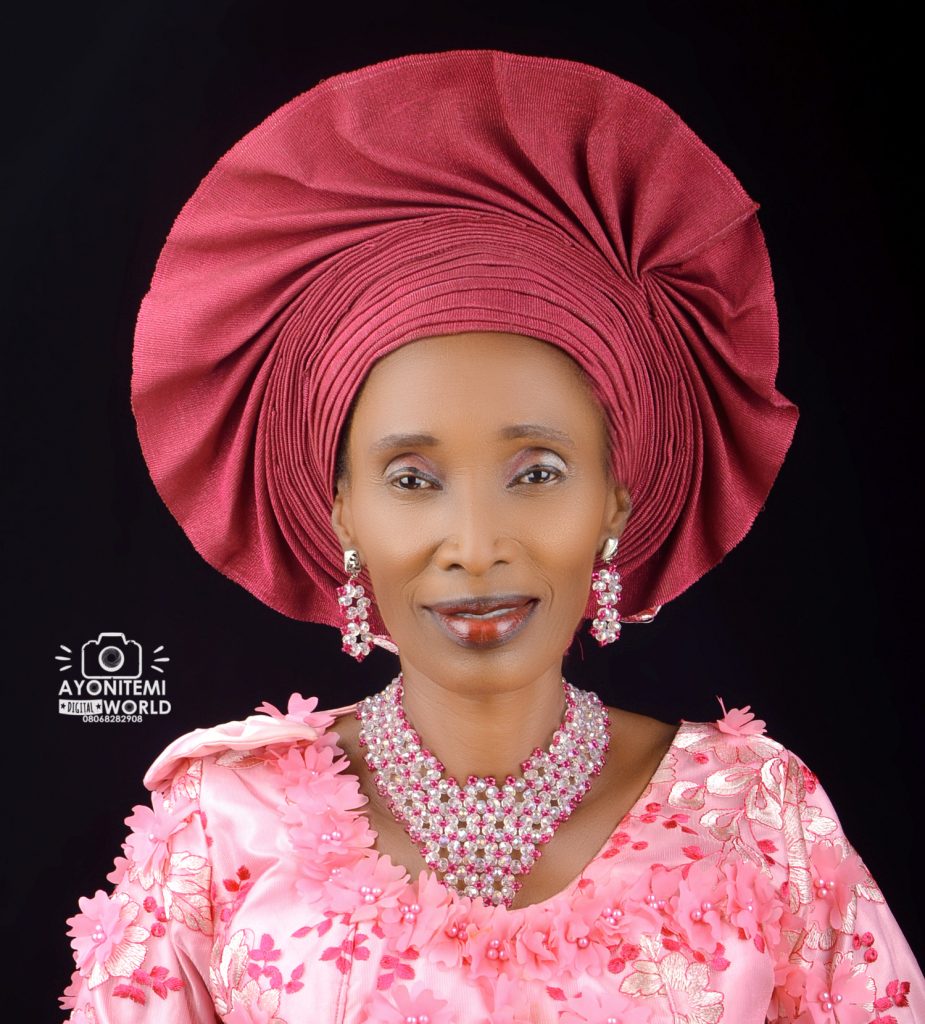
Awotona Ajoke Adijat is an infection prevention and control nurse at Federal Teaching Hospital Ido Ekiti. She is responsible for providing ventilatory support and critical care to COVID-19 patients in the ICU and claims that the pandemic turned her into a champion on the use of ventilators.
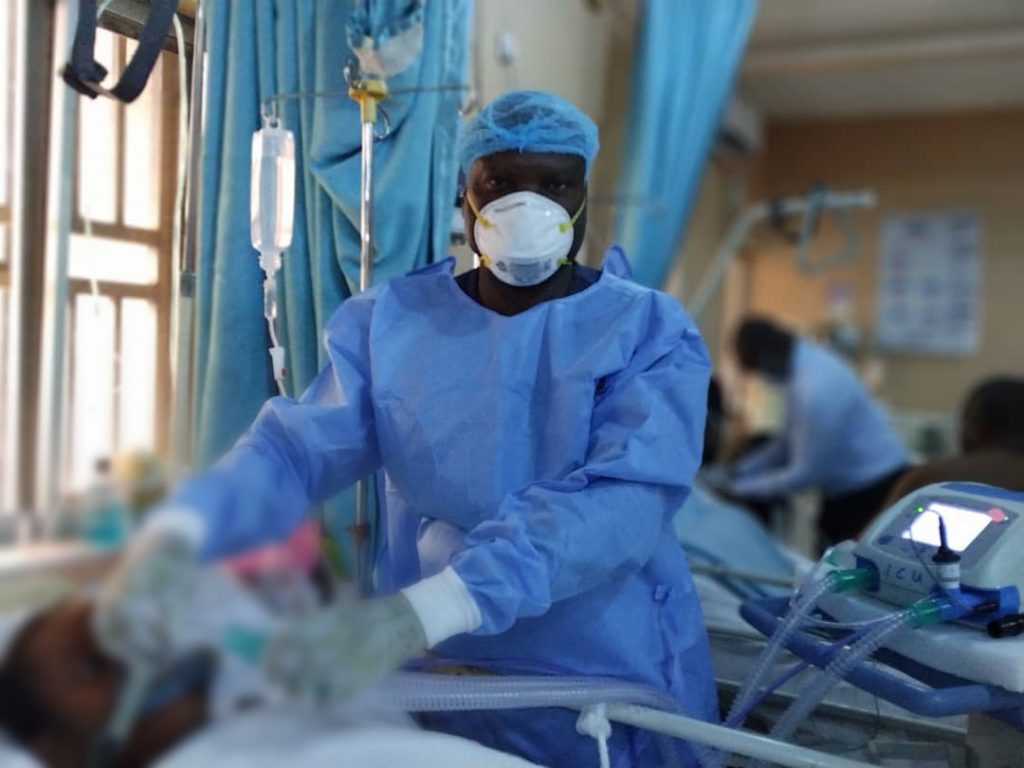
Job Gogo Otokwala is an anesthetist at the University of Port Harcourt Teaching Hospital who has successfully provided ventilatory support to patients, including many who “were fellow health workers who got infected in the line of duty.”

Robert Egot is a senior registrar undergoing his residency training in anesthesia at National Hospital Abuja. According to Robert Egot, the COVID-19 situation is complex and has brought palpable fear among patients with severe forms of the disease. In his words, “I had to volunteer selflessly to help the acutely ill patients. I also carried out other assignments like training other health workers on infection prevention protocols, donning & doffing of PPE, and led public enlightenment campaigns to improve hygienic measures and home care support. I have supported other health workers to gain skills on the use of oxygen therapy devices and mechanical ventilatory support”. According to Robert, being a doctor requires a lot of sacrifice in difficult times.
“It’s not just about what we do when things are good, but where we stand in times of difficulty is the true test of our passion for the service of humanity”.
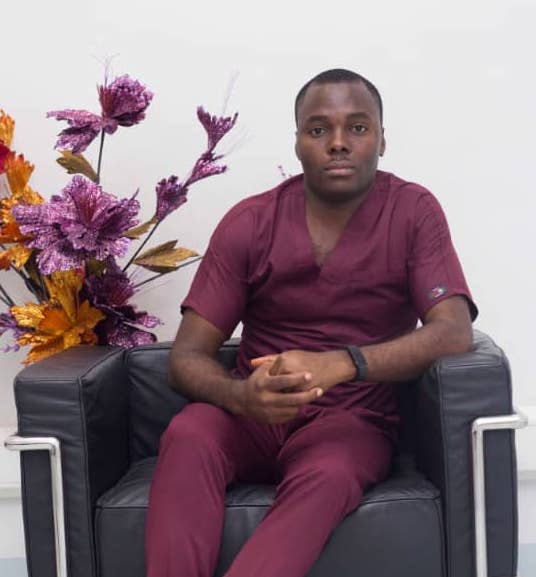
Daniel Friday Okon is a biomedical engineer at Ibom Specialist Hospital. As a result of the paucity of biomedical engineers in most health facilities including Ibom Specialist Hospital, he had to be present at the health facility on a 24/7 basis. Sometimes, he stayed back in the hospital for days with minimal breaks to ensure that doctors and nurses in the intensive care unit have the support to provide care to patients.
These stories underscore the resilience that health workers have shown in the face of COVID-19. It also highlights that building the capacity of health care workers has empowered them to proffer life-saving solutions in the midst of limited resources.


